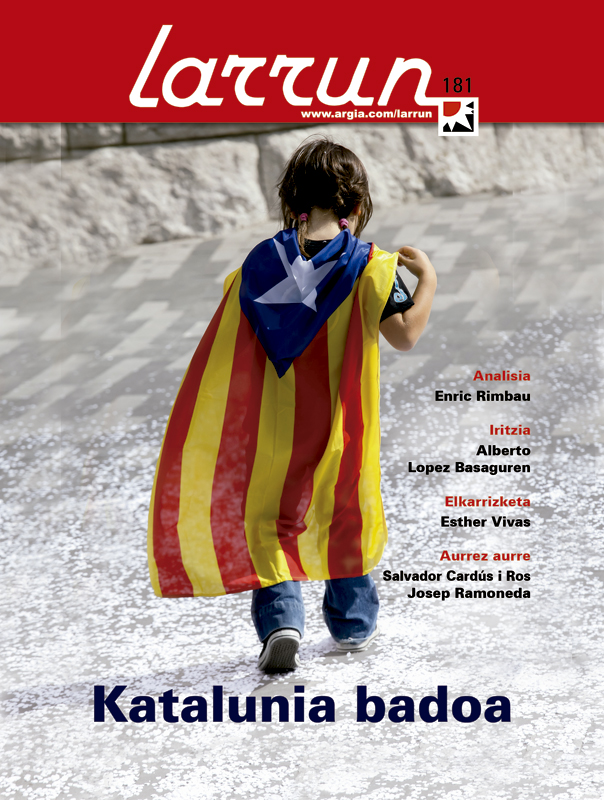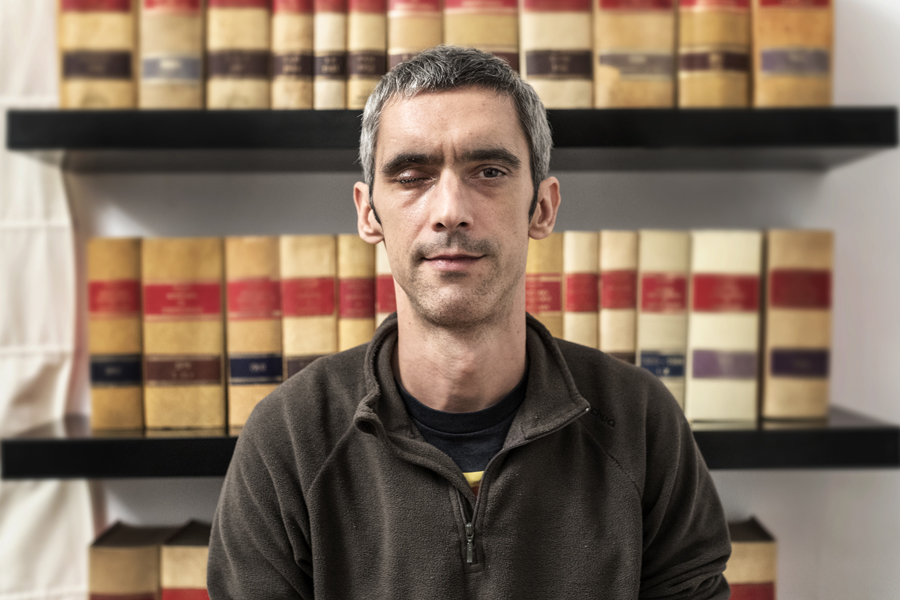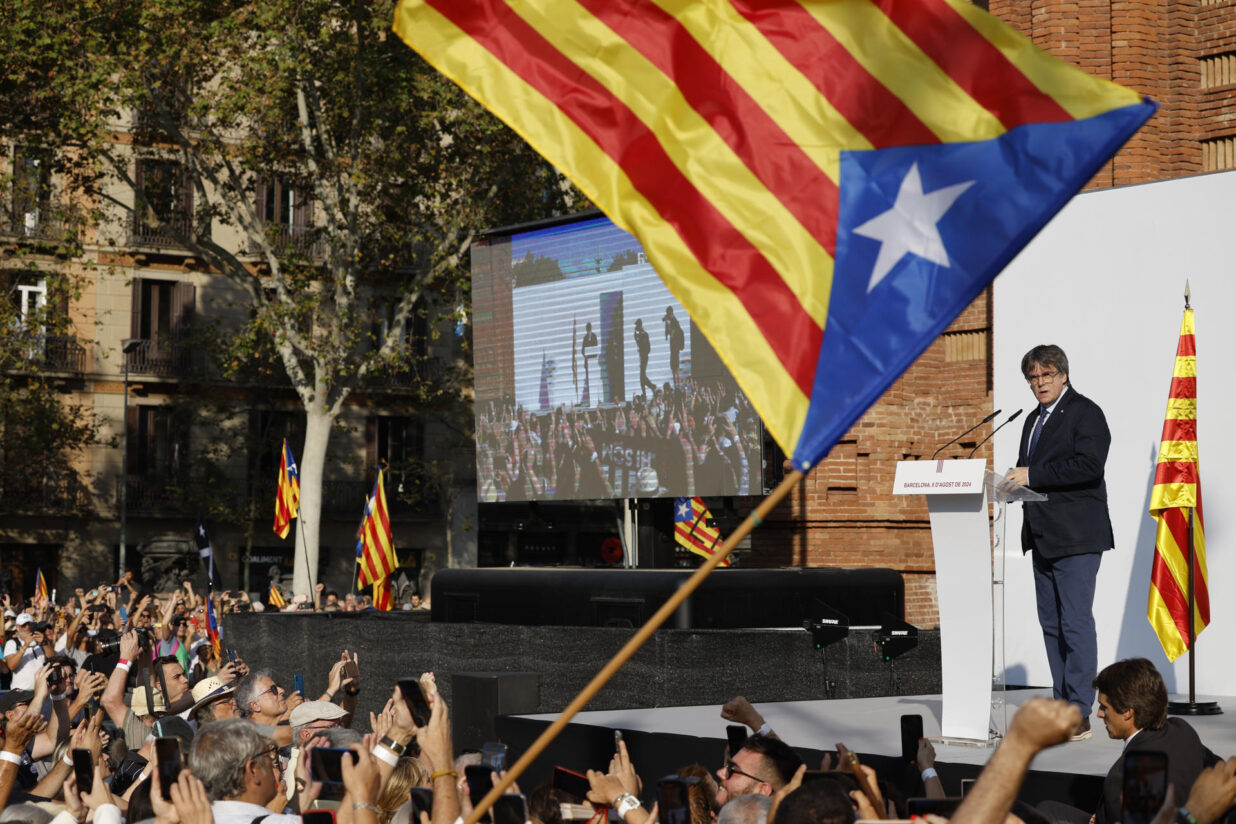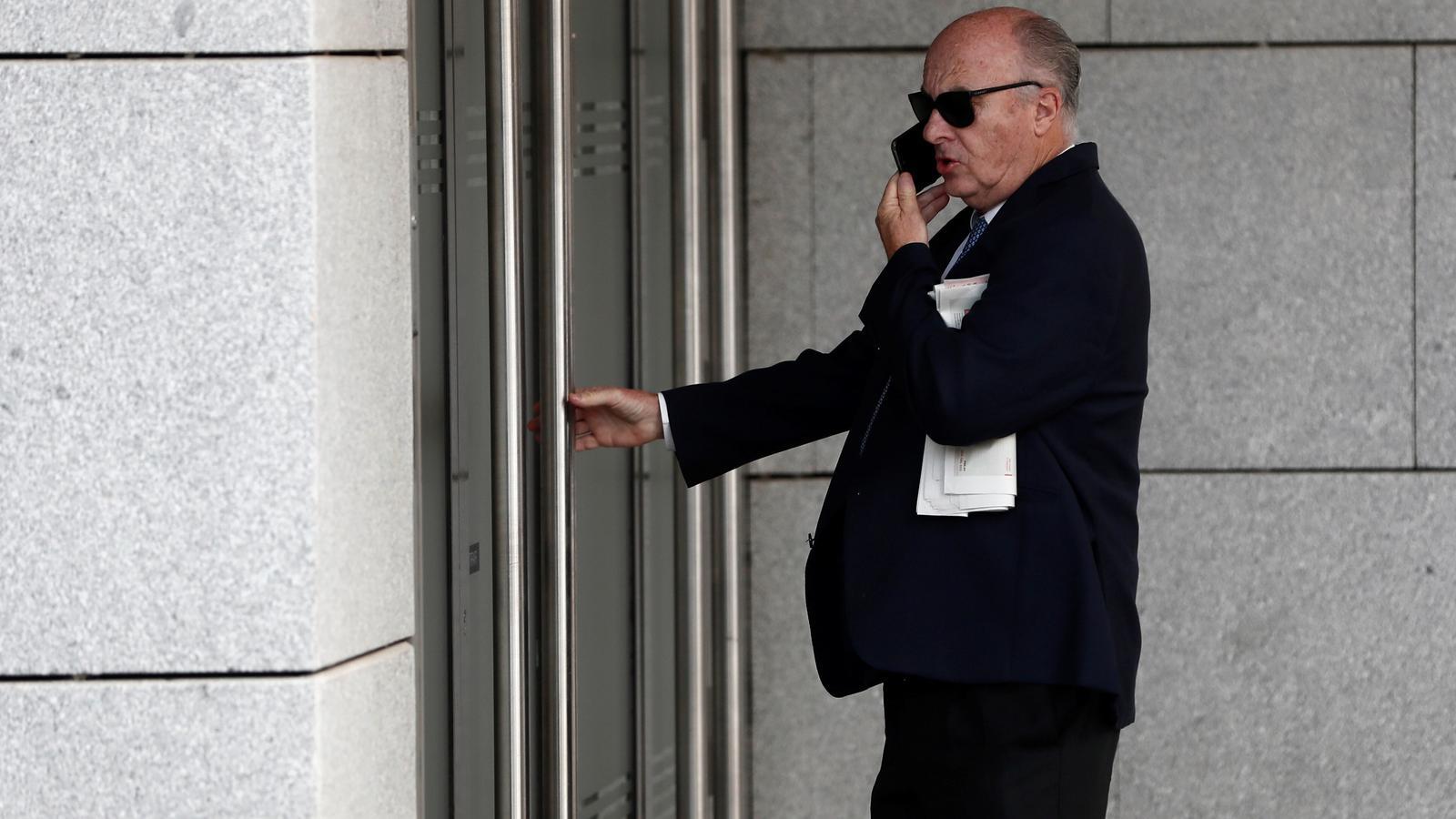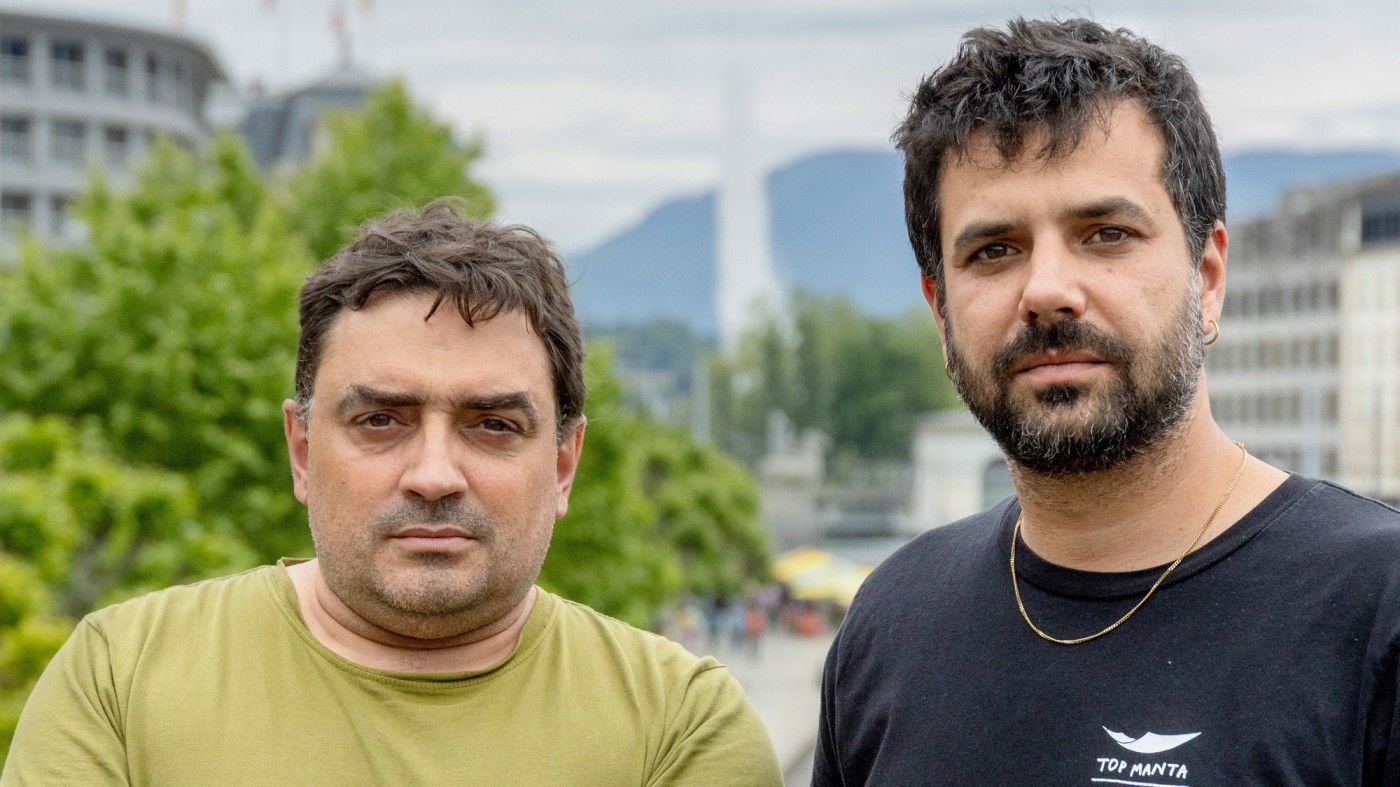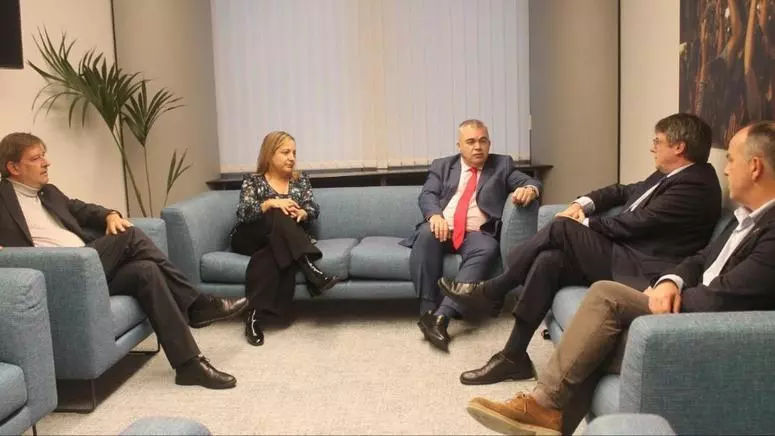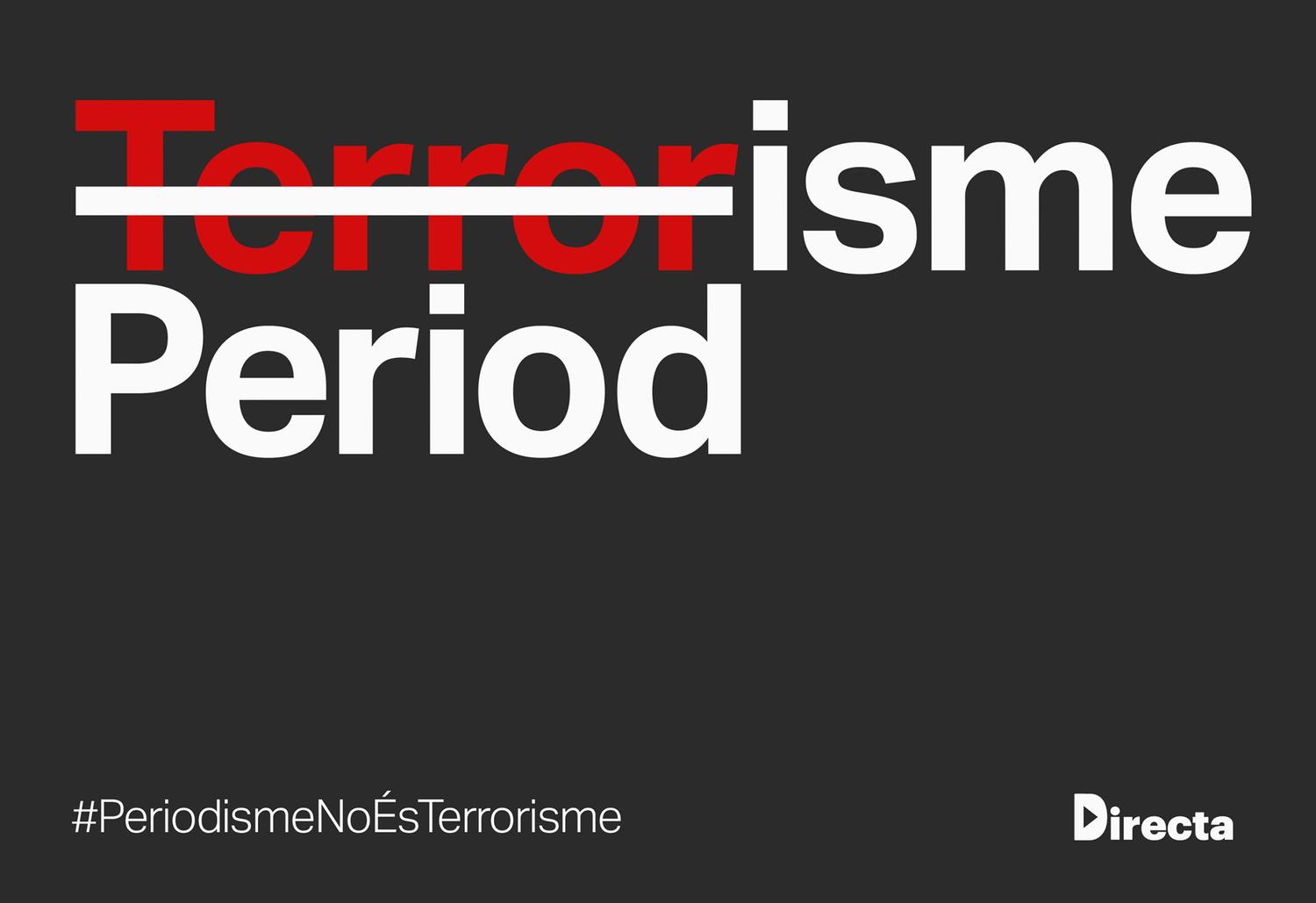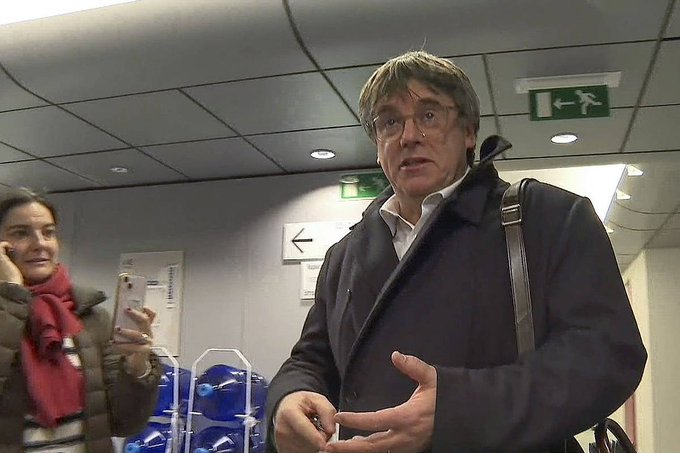Two points of view and one conclusion: Independence? Need to vote yes or no
- To Josep Ramoneda and Salvador Cardús we have put a difficult exercise: not so much to clarify those who have brought to Catalonia where he is today, but to try to find out where he will go from here.
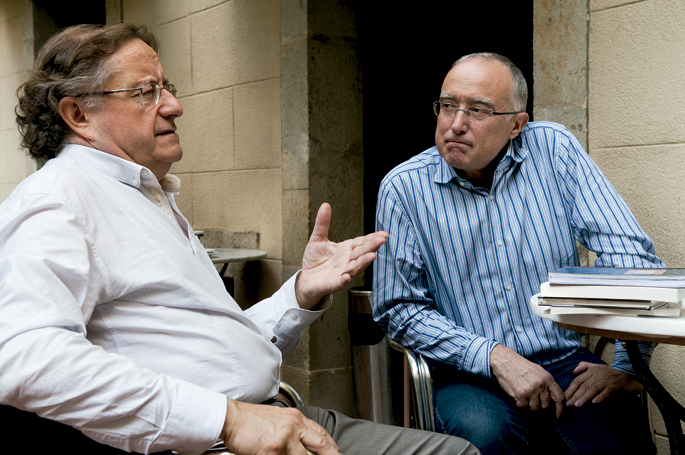
It's not the best time for analysis, inside the whirlpool. It's hard to take a distance, to see things in perspective. But if we talk about minimizing the margin of error, who better than Ramoneda and Cardús in Catalonia? And the first question I had to ask was whether a consultation on independence is the only possible solution for the sovereign process in Catalonia today. Today, however, we are once again witnessing the difficulty to which we refer: more and more voices have been heard that have seen in recent days the unilateral declaration of independence as a solution.
Unilateral declaration of independence. Do we already have to be on that new stage?
Salvador Cardus: Location so far consulted. But it seems that since the summer Spain has already decided that there will be no consultations, which will not go by. And that puts us in a different situation: what solves the problem will not be consultation, but it has become a problem to have asked or to want to have a consultation. The unilateral declaration of independence does not seem to me to be a good answer, or at least not a decisive one. What would happen the next day? I don't think there's any way, it's one more wall.
JOSEP RAMONEDA: It is clear that the stages are burning very quickly. Theoretically, the legislature of the tax pact would now be up to us. But that stage ended from day to day, after a meeting between Artur Mas and Mariano Rajoy, after the 2012 Diada. We shall now proceed to the consultation on the tax pact. And now it seems that the consultation is depreciated, because there is no sign whatsoever of what they are going to allow. There is an inertia to do something that can be done by law, and the only thing that cannot be prevented is for elections to be called. And let the result be a majority that has come up with the idea of a unilateral declaration of independence. But the fact that elections become plebiscites doesn't seem to help solve things, because they tend to create confusion. A consultation is very clear, yes or no, these are the answers.
Would it therefore be a consultation that unleashes the situation in Catalonia?
J.R.: When faced with a problem of this kind, the intermediate outputs disappear, in this case because Madrid does not give an option to any intermediate solution. Statu quoa or independence, there is no other option. And only that can be solved by voting and voting clearly. Otherwise, many elements of confusion and difficulty come into play.
sports club There will be those who propose non-legal formulae from civil society, such as a consultation organised from the municipalities, with the maximum guarantee but outside the limits of the law. These kinds of proposals will come out, not even the independence movement likes plebiscite elections, because the result is blurred. For Christmas there may be a question and a date, but on the same day we put them we will have the negative answer. And the consultation will also burn.
What, then, would be the most appropriate solution?
J.R.: A consensual consultation that would leave a clear and clear result to start as friendly a negotiating process as possible.
sports club British model, trying to be rational in procedures. That does not mean that you do not defend your interests and that the negotiating process is long, difficult, complicated. But let's see which one goes better. That would be the most reasonable way out.
J.R.: And the smartest on the part of Spain: it is the only opportunity they have to win. If they did it politically well, they could win a referendum.
sports club If they had accepted it a year ago, they would have won. We do not win today, but a year ago those yes, with a flexible negotiating position, we would be deactivated. Now no longer.
J.R.: And yet, it's the only chance to win...
I don't think they take this opportunity ...
J.R.: There are some objective data that we should review. First: Although we have never thought anything else, it is now very clear that Spain has chosen the path of confrontation. A last-minute fear may make you change your attitude, but the pp is clear right now: It sees the possibility of saving the electoral situation in Spain and stifling the PSOE by proposing a thorough constitutional reform, arguing that it is not patriotic enough to allow a radical change in the Constitution. The second, I've always thought that at some point CIU was going to go backwards. But today, and by direct information, I am convinced that President Mas has made the personal decision to go to the end of this process. These two elements have made the timetable faster than we expected.
How do you see the development of the sovereign process, the speed with which events have taken place? You, Salvador, have ever compared the guerrillas with the logic of war.
J.R.: I think there will now be a tension to bear in mind. There will be a natural acceleration of the process, but an important attempt to slow down on the part of strong sectors will want to neutralise it. Don't stay, because some don't want to and others don't know how. But everything is as slow as possible.
sports club The essay will certainly be, but Spain’s “all or nothing” strategy is frustrating for those who want it. If Spain allowed compensation of some kind, perhaps, but it is clear that no, there will be no comfort either. There's no willingness to move, so they can't cool the account either. The hardness of the position adopted by Spain accelerates the deadlines.
And what do you think of the Spanish Government’s strategy to stop the sovereign process? Josep, you have once said that a political solution must be found to a political problem. Isn't it too late...?
J.R.: A lot of things are mixed together. A matter of principle, to start with: there are things that have limits, and this is one. Then, there is still no complete awareness of this mobilisation; in Spain they still think that all this will evaporate. And finally, they believe that Convergència is the same party as Pujol's. Thus, they conclude that sooner or later they will return to their site and, if not, return when Mas takes off in the middle. They've got the obsession with dropping Mas. But it's absurd, if you had a clear dimension of the problem, you would see that now Junqueras is the emerging leader. You should see that the situation is a little more complex. And then there's an attitude of not looking directly in the face at a very important social movement, the same thing they did on another scale with the M15 motions, as if it didn't exist.
sports club Madrid is playing mus and has given the ÓRDAGO: everything or nothing. The challenge is to know who holds the most. It is above all a matter of honour. When they say that independence is “impossible”, it is not an argument. It is not good to say “it does not suit us”, “it will harm us” for these and other reasons. It's no longer fear. “No, and period.” And they think that puts us in a difficult situation. They do not realize that it produces the opposite here, if they say no, without reason, the idea that there is no other option than independence is reinforced here. It does not weaken us or correct us, but it confirms the decision taken.
J.R.: This “not possible” has two serious problems: the first, which is the opposite of history; how many impossible things have been possible in history? And the second is that the principle of the impossible is the denial of intelligence, of a lot of poverty and authoritarianism.
How far can they go with that answer?
sports club To the precipice. When one of the two falls, it is, something will happen. It's not easy to imagine what. But let's see who's the first to make mistakes. Imagine that at some point Spain abandons Catalan autonomy. You're done. There may be a time when they make a gesture beyond what is acceptable, and then they fall from the abyss. And when that happens, what has happened in all the other countries – with the fall of the wall in Germany, with the dissolution of the Soviet Union – will happen, something unthinkable up to five minutes before it happened. And then, yes, it's happened, and it's also not the end of the world. And we'll spend our whole lives trying to explain what's happened and how it's happened and why we weren't able to predict.
J.R.: The greatest danger in Spain is that some step will be taken that Europe cannot accept. For the moment, Europe is playing its part: to settle it among you. At a time when Spain is crossing the border, that can be changed.
sports club The fact that Europe takes this as an internal problem and is not a clear position is something that has greatly favored us. It would be normal to say, yes, that this is an internal problem, but that the States do not touch each other. They have barely entered, and that seems to me to be a good starting point.
And how can it be that from Madrid, not only from the government, not a single positive response has been given, that the least attractive proposal for Catalonia has not been put forward?
J.R.: For starters, there's very deep inertia. And then what can they offer? They can't offer anything without touching the system. Zapatero once said, quite rightly: the problem with the state of autonomy is that expenditure is very decentralised and the political decision is very centralised. So you either give away a lot of political decisions, or you can't offer anything. And you can't see the will for it at all.
sports club The thing is that they have created conditions of speech that make regression impossible: they have brought the Statute to the Constitutional Court, they have grown on an anti-Albanian discourse, they have encouraged like-minded media – almost all – to push things to the limit. Imagine, the PSOE has proposed a constitutional reform in two years’ time, and the patriotism of purple formation has already been called into question. Imagine now that Rajoy says he wants to open a dialogue to see if the political issue can be settled, not just the fiscal issue. They will crucify him. They have taken everything to a place where there is no room for manoeuvre. At the moment they are the most imprisoned in the situation than we are. They have, of course, also brought the account to a point where you cannot go back. Artur Mas and Oriol junqueras, for example, have mortgaged their future in this adventure.
Polls indicate that this process is changing the Catalan political map.
J.R.: CIU and the PSC are two parties that go down as they are the parties that represent the structure of the autonomous state. We have passed this stage. The PSC is in the process of liquidation, cannot be recovered. Nothing else will happen, but it's something the PSC has done. And a certain breakdown of CIU seems inevitable to me if a part of Unión maintains the positions it now holds. CIU and PSC, axes of Catalan Autonomy, belong to another era. And from now on their role will be different, they will undergo huge mutations.
sports club Not just those two, but all the parliamentary maps. CKD has no life beyond independence. In an independent Catalonia, ERC will have to explain another film. Junqueras is now the leadership he has to bring the country to independence, not to stay in the party. Junqueras, Mas... are people who lead us to independence, but then they will disappear. The ICV seems to remain stable, but the conflict is being delayed. All the proposals they make are the big question that has not been asked of themselves to slow down the process, and that they will have to do, not without going through difficulties. The Cup and the Procés Constituent also have around them two worrying movements. If they get fired, they'll eat them. Then we have a completely northernless PP, with a fully depreciated leader. Ciutadans is no party, he is just an opportunistic leader who has been able to seize the opportunity, this moment of change. But when the time passes, on one side or the other, it makes no sense.
Will Catalonia be independent in the short term?
J.R.: Who knows? Now there are no sustainable backward steps. But what I don't know is how we're going to do the impossible.
sports club I think so. As things stand, I do not know what can stop this process. If it were a negotiation between governments, maybe -- but I can't imagine that the people who made this wager will now switch it to a tax deal. What is more, there are now no alternative projects, no illusions.
Cervera, 1949. 1989tik, hogei urtez CCCB Bartzelonako Kultura Garaikideko Zentroko zuzendari izana. PSC Kataluniako Alderdi Sozialistako ideologo nagusitzat hartua, nahiz gaur egunean ikuspegi oso kritikoa duen alderdiak hartutako norabidearekin. Hainbat libururen egilea da, halaber; azkena, La izquierda necesaria (2012). El País eta Ara egunkariekin, eta Ser irrati katearekin kolaboratzen du.
Terrassa, 1954. Universitat Autònoma de Barcelonako irakasle. Institut d’Estudis Catalanseko kide. Trantsizio Nazionalerako Aholku Batzordean parte hartzen du. Independentista, “%20 izatera iristen ez ginenetik”. Liburu ugari idatzi du, adibidez, El camí de la independència (2010). La Vanguardia eta Ara-ko kolaboratzailea da, Catalunya Ràdiokoa. Radio Euskadikoa ere bai, sozialistak lehendakaritzara iritsi ziren arte.
Lau agenteak lesio-delituengatik ikertzen ari dira eta horrek galarazten du 2024ko amnistia aplikatzea. Polizia horietako batek, ustez, gomazko bala batekin begi bat zartatu zion Roger Español kataluniarrari.
Walk from a train station, two friends and a hug. This hug will be frozen until the next meeting. I'll come home, he'll stay there. There, too, will be free the painful feeling that injustice wants us to catch. Jesús Rodríguez (Santa Coloma de Gramenet, 1974) is a journalist,... [+]









